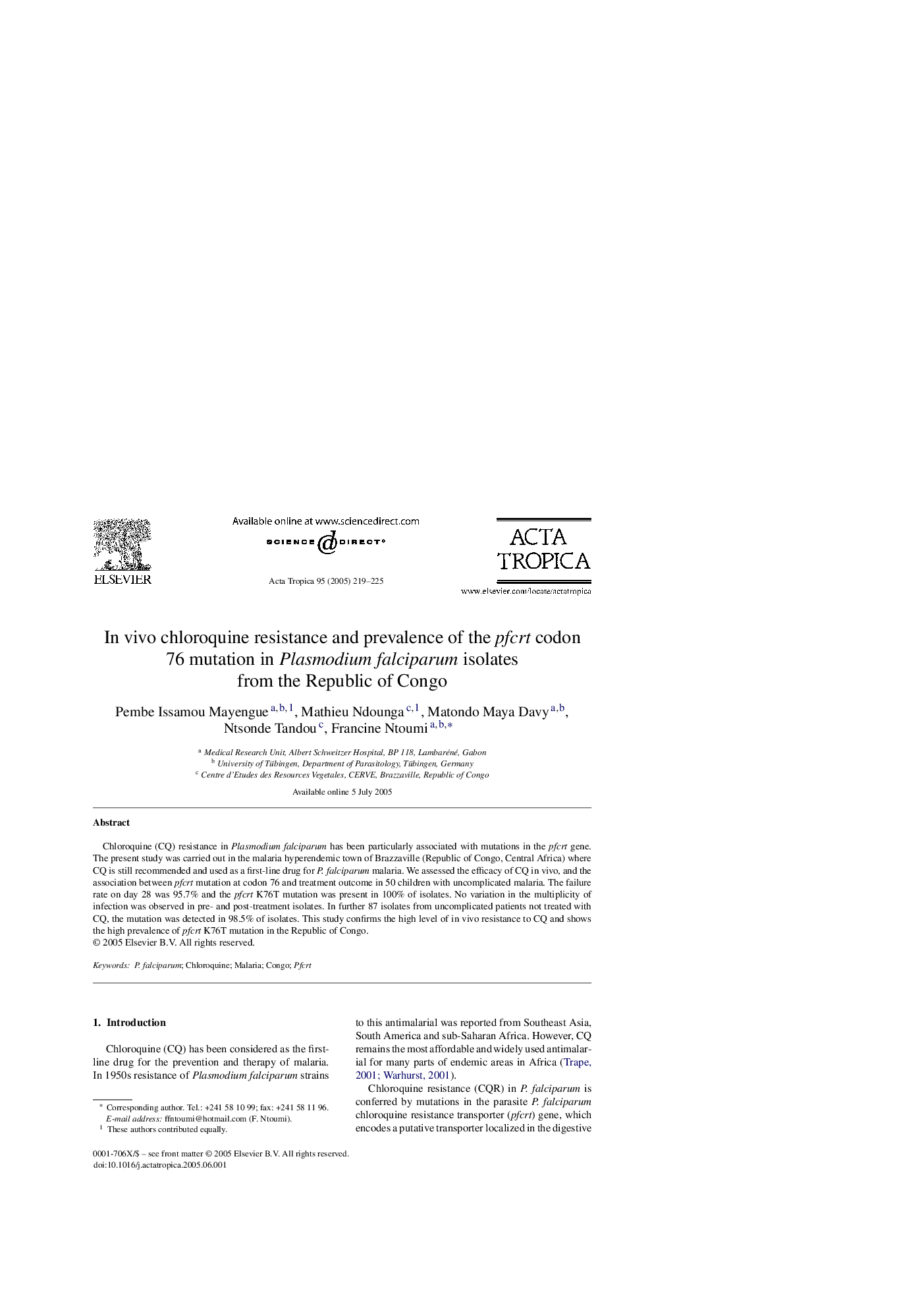| Article ID | Journal | Published Year | Pages | File Type |
|---|---|---|---|---|
| 9274319 | Acta Tropica | 2005 | 7 Pages |
Abstract
Chloroquine (CQ) resistance in Plasmodium falciparum has been particularly associated with mutations in the pfcrt gene. The present study was carried out in the malaria hyperendemic town of Brazzaville (Republic of Congo, Central Africa) where CQ is still recommended and used as a first-line drug for P. falciparum malaria. We assessed the efficacy of CQ in vivo, and the association between pfcrt mutation at codon 76 and treatment outcome in 50 children with uncomplicated malaria. The failure rate on day 28 was 95.7% and the pfcrt K76T mutation was present in 100% of isolates. No variation in the multiplicity of infection was observed in pre- and post-treatment isolates. In further 87 isolates from uncomplicated patients not treated with CQ, the mutation was detected in 98.5% of isolates. This study confirms the high level of in vivo resistance to CQ and shows the high prevalence of pfcrt K76T mutation in the Republic of Congo.
Related Topics
Life Sciences
Immunology and Microbiology
Parasitology
Authors
Pembe Issamou Mayengue, Mathieu Ndounga, Matondo Maya Davy, Ntsonde Tandou, Francine Ntoumi,
